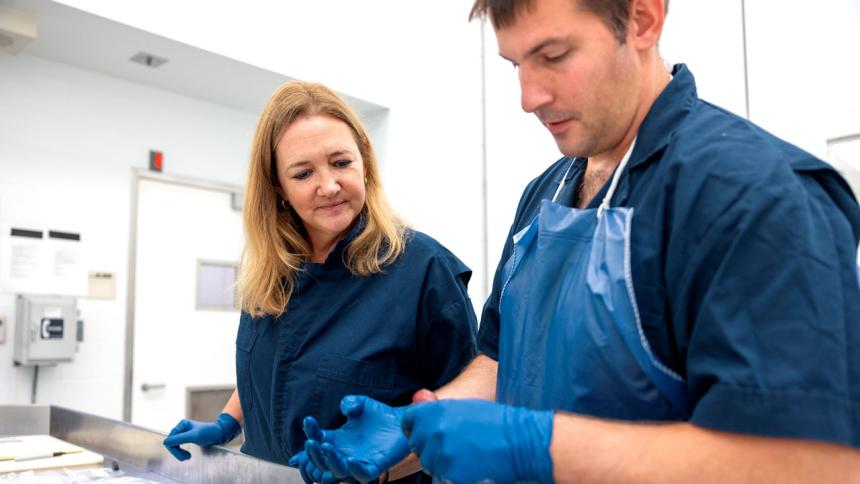In the News

April 17, 2024
Cornell Lab of Ornithology staff have been working with wildlife veterinarians at Cornell’s Janet L. Swanson Wildlife Hospital to monitor Big Red, the beloved matriarch of the Red-Tailed Hawk Cam. Big Red appears to have sustained an unknown injury to her right foot.

Blog
April 15, 2024
My role within the lab is a complex balancing act of time management, project and sample organization, and managing our case data stream. I guide incoming diagnostic case submissions, manage research project samples and submissions, and help facilitate educational activities like wet labs and symposiums....

February 14, 2024
Cornell University’s College of Veterinary Medicine announced a gift of $35 million to support the Cornell Wildlife Health Center, which has been renamed to the Cornell K. Lisa Yang Center for Wildlife Health in recognition of the scale of commitment to planetary health from the donor, Lisa Yang.

January 30, 2024
A transformational gift from philanthropist and Cornell alumna K. Lisa Yang ’74 will endow and rename the Cornell Wildlife Health Center as the Cornell K. Lisa Yang Center for Wildlife Health at the College of Veterinary Medicine.

November 30, 2023
Dr. Cynthia Hopf-Dennis from the Janet L. Swanson Wildlife Hospital at Cornell University discusses her path to teaching and practicing wildlife medicine and population health to preserve the health and well-being of our native wild animals while educating others about their value.

November 22, 2023
State agencies are stepping up education and outreach to promote voluntary adoption of non-lead alternatives, acting on recommendations from their Lead Ammunition Working Group, a multidisciplinary partnership that includes the Cornell Wildlife Health Lab.

November 17, 2023
While avian influenza has affected multiple bird populations and a range of mammal species across the world, the Cornell Janet L. Swanson Wildlife Hospital has optimized its use of clinical medicine, practical precautions, and collaboration to effectively manage the risk of disease transmission among birds in the hospital, and from birds to mammals, including humans.

Video
October 23, 2023
In this eCornell webinar, Dr. Steve Osofsky, Dr. Krysten Schuler, and Dr. Jennifer Bloodgood of the Cornell Wildlife Health Center at the Cornell College of Veterinary Medicine share their experiences from the field and the lab to illustrate how the health of wildlife and our own health are inextricably linked.

October 17, 2023
A black bear being treated at the Cornell Janet L. Swanson Wildlife Hospital tested positive for a Salmonella strain that had not been seen in animals in the U.S. before. A joint study between the hospital and Dr. Kevin Cummings helped detect the outbreak quickly and prevent the bacteria from spreading further.

News
August 18, 2023
While she’s now nearing the completion of a two-year Veterinary Fellowship at the National Aquarium, Sarah Balik ‘15, DVM ‘19, clearly recalls experiences she had as a Cornell veterinary student that set her on her current path.
